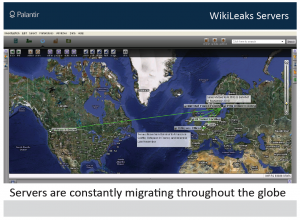A number of bloggers are pointing, with concern, to an Oregon case in which a blogger got hit with a $2.5 million defamation judgement.
Oregon law provides special legal protections against defamation lawsuits to journalists associated with traditional media outlets. Such publications are immune from defamation suits unless the defamed individual first requests a retraction. Journalists at recognized media outlets are also protected from revealing confidential sources. Cox argued that she was eligible for protection under both provisions and asked the judge to set aside the verdict.
But Judge Marco Hernandez disagreed. “Although defendant is a self-proclaimed ‘investigative blogger’ and defines herself as ‘media,’ the record fails to show that she is affiliated with any newspaper, magazine, periodical, book, pamphlet, news service, wire service, news or feature syndicate, broadcast station or network, or cable television system,” the judge wrote. “Thus, she is not entitled to the protections of the [Oregon journalist shield] law.”
That result was apparently dictated by the text of the Oregon shield statute, which singles out those specific media technologies for legal protection.
But as Kashmir Hill notes, even aside from the outdated terms of Oregon’s law, the woman in question had set up a series of websites pretty much designed to hurt the reputation (and especially the Google searches) of the firm in question, and then sent an email asking for $2,500 a month for “reputation management” services to undo her work.
The Oregon case, in other words, is more complicated than it has been portrayed.
DOJ Doesn’t Consider Many Bloggers News Media
But while we’re talking about whether bloggers are protected under media guidelines, we probably ought to be looking at DOJ’s recently changed Domestic Investigation and Operations Guide, which also don’t consider bloggers to be protected as media (I wrote about these changes here, but the guidelines themselves have been released, in heavily redacted form). Unlike Oregon, DIOG does include online news in its definition of media (PDF 157).
“News media” includes persons and organizations that gather, report or publish news, whether through traditional means (e.g., newspapers, radio, magazines, news service) or the on-line or wireless equivalent. A “member of the media” is a person who gathers, reports, or publishes new through the news media.
But then it goes on to exclude bloggers from those included in the term “news media.”
The definition does not, however, include a person or entity who posts information or opinion on the Internet in blogs, chat rooms or social networking sites, such as YouTube, Facebook, or MySpace, unless that person or entity falls within the definition of a member of the media or a news organization under the other provisions within this section (e.g., a national news reporter who posts on his/her personal blog).
Then it goes onto lay out what I will call the “WikiLeaks exception.”
As the term is used in the DIOG, “news media” is not intended to include persons and entities that simply make information available. Instead, it is intended to apply to a person or entity that gathers information of potential interest to a segment of the general public, uses editorial skills to turn raw materials into a distinct work, and distributes that work to an audience, as a journalism professional.
The definition does warn that if there is any doubt, the person should be treated as media. Nevertheless, the definition seems to exclude a whole bunch of people (including, probably, me), who are engaged in journalism.
DOJ Has Made It Easier To Investigate Journalists’ Contacts
Though to some degree, it doesn’t matter, because the new DIOG treats the media so poorly in any case. It considers investigations sensitive (and therefore requiring special approvals) only if the member of the news media (or religious or political organization, or academic institution) is the subject of the investigation, not if they are a witness, as media almost always will be in leak investigations.
Just as troubling, the new DIOG seems to make it a lot easier to get news media contact records in national security investigations. Read more →
We’re an empire now. And when we act, we create our own reality. –Senior Bush Advisor to Ron Suskind

